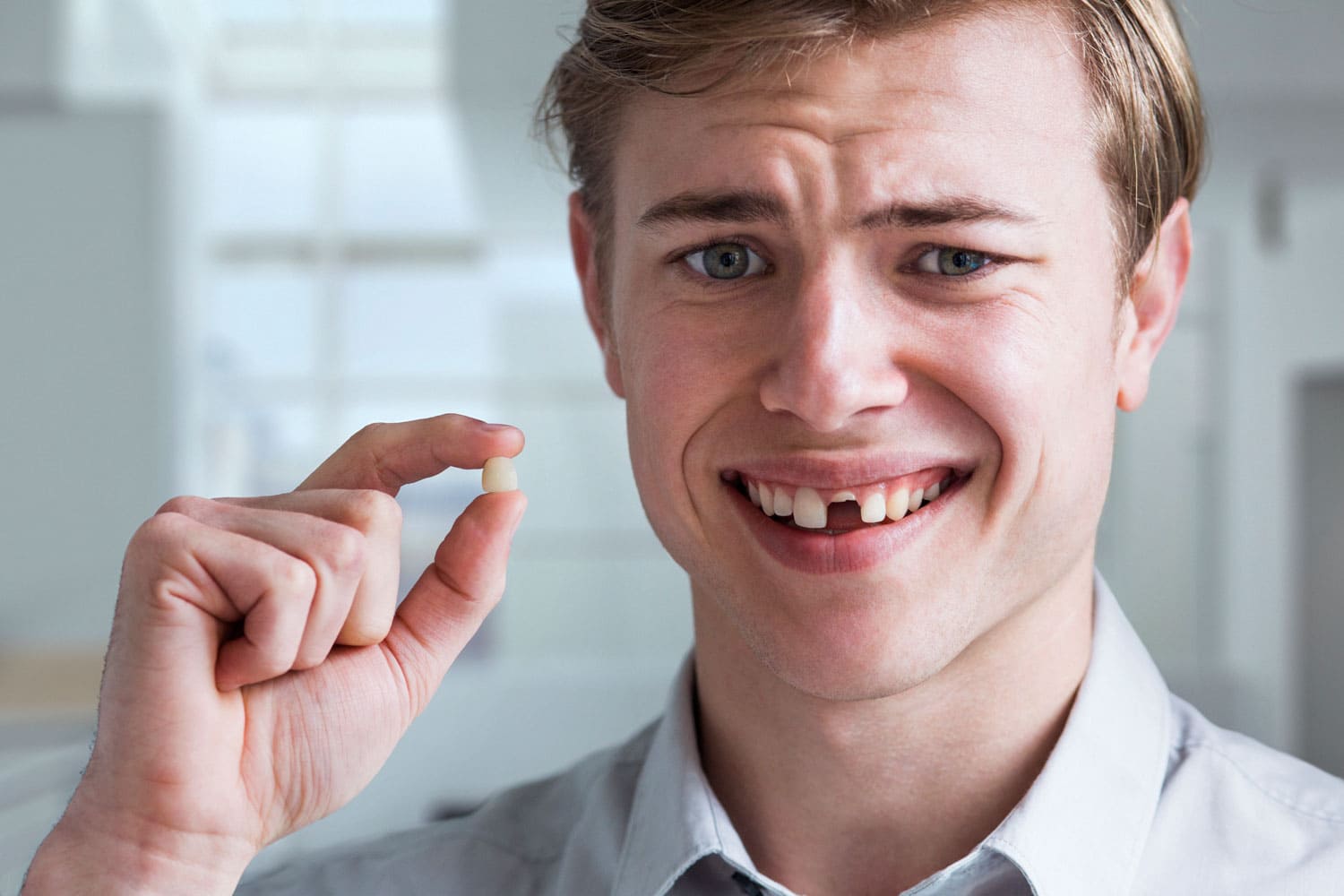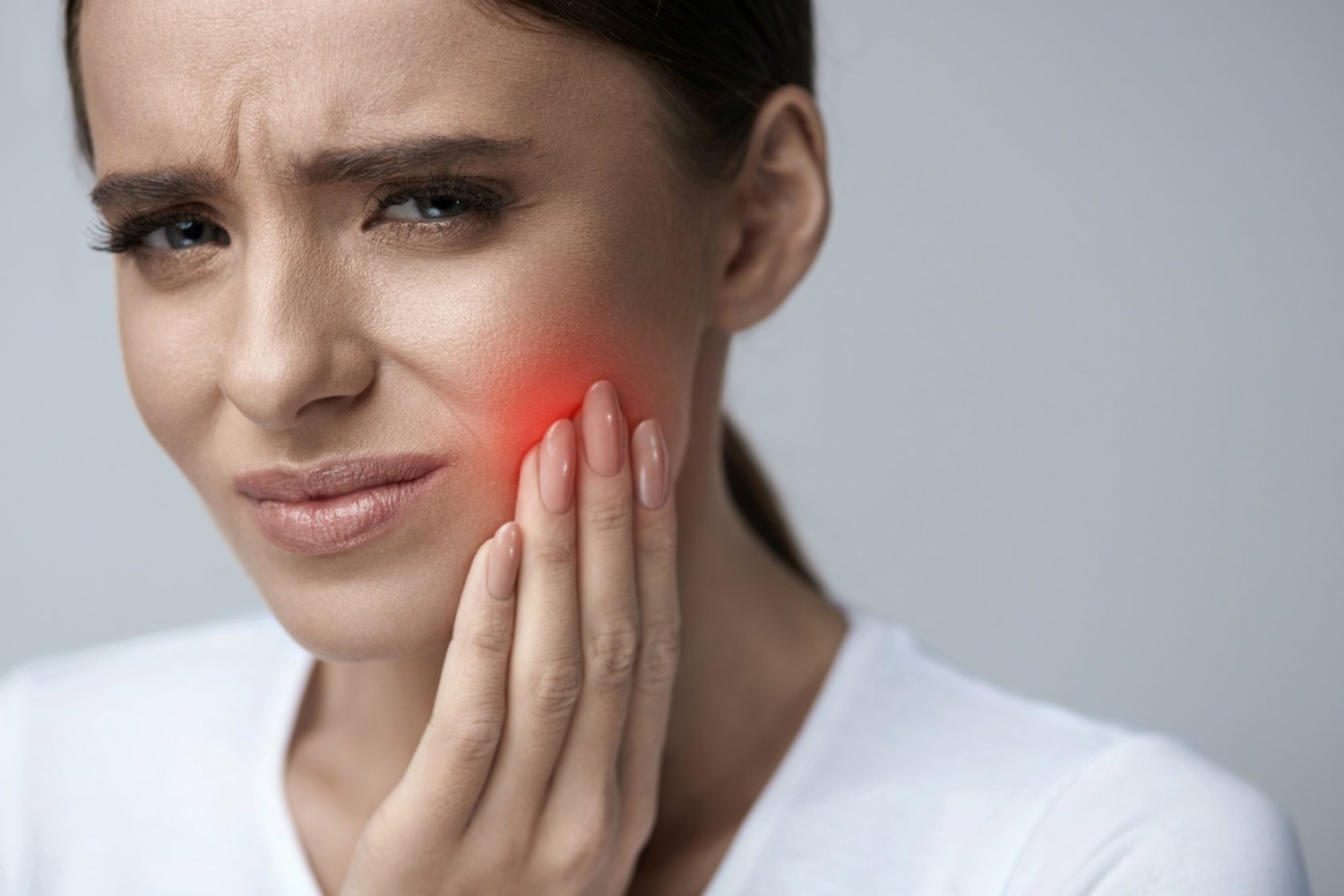Tooth enamel is the strongest tissue in the human body. But despite this, dental trauma can happen to both children and adults. And this unpleasantness happens unexpectedly, bringing considerable discomfort. Why a tooth chipped or broke off, and what to do in such a situation – we will tell you in this article.
Causes of chipped teeth
There are many causes of tooth damage, but the way to solve this dental problem is one – the prompt assistance of a specialist who will return the integrity of the tooth, and with it, the aesthetics of the smile and chewing activity.
Among the popular reasons why a tooth has chipped off, stand out:
- Consumption of hard and pulling foods
- Mechanical damage (fall, impact)
- Lack of calcium in the body
- Neglected or under-treated tooth decay
- Improperly placed or old fillings
- Cracked enamel
- Bite abnormalities
Types of tooth damage

Chipped teeth differ in the degree of damage. But all of them are subject to aesthetic restoration if addressed to the dentist in a timely manner.
- Chipping within the enamel
This is damage to the tooth within the enamel, which does not cause painful sensations. Therefore, it is rare to have this problem, especially if the tooth does not fall within the smile zone. - Chipping within the dentin
This is damage to the less dense layer under the enamel, in which the tooth reacts to hot and cold, to sweet and sour. And if you don’t see a dentist right away, the remaining dentin will wash away. A sharp pain will begin due to the exposure of the tooth nerve. - Chipping to the pulp
Deep chipping affects the pulp of the tooth, which is accompanied by severe throbbing pain. This is a serious injury that can lead to tooth loss if dental care is not provided immediately.
Damage to baby teeth

Chipped baby tooth? Chipping of baby teeth occurs more often than in adults. This is due to the increased activity of children. Parents incorrectly believe that milk teeth can be untreated and not restored after chipping, as molars will eventually grow in. After all, it is healthy first teeth that are strong teeth in adulthood!
What to do if a tooth has chipped off? Disinfect your child’s mouth and go to a pediatric dentist. He or she will apply a special gel that “preserves” the damaged tooth and prescribe treatment. Most often, restoration of a baby tooth is done with a filling.
Dental care for damage
If a piece of your tooth has chipped off – contact a dentist. He will prevent further destruction and restore the tooth with modern materials.
The specialist will offer the best treatment option depending on the extent of the chip and the location of the tooth.
- Filling
Tooth restoration with a filling is possible on both front and chewing teeth in case of minor chipping. Modern light-curing composite materials are used for this purpose. - Veneers
These are ceramic onlays on the front surface of the tooth and the incisal edge. They are suitable when it is not possible to “augment” a tooth with a filling. Veneers perfectly restore the shape of teeth in the smile area. - Inlays
This is a modern alternative to fillings – ceramic inlays for restoring chewing teeth when they are more than half destroyed. They successfully restore the shape and activity of the teeth, and they do not wear off or shrink. - Crowns
If a significant piece of tooth has been chipped off with damage to the pulp chamber, a crown should be placed after nerve removal and canal treatment. If the front tooth has chipped off, aesthetic ceramic restorations are suitable for its restoration, and strong zirconium or metal-ceramic structures are suitable for chewing teeth.
Difficulties and problems with chipping

If you do not pay attention to the fact that the tooth is broken or chipped and do not carry out treatment, a number of associated problems can arise.
Among them:
- Increased tooth sensitivity
A painful reaction to cold and hot foods or drinks appears. Tooth sensitivity makes it difficult to eat, speak, and even breathe. - Infection of the pulp
With extensive chipping, the nerve endings can become exposed. This is already a serious injury with inflammation, when the pulp must be removed. - Cysts and granulomas
If a large piece of tooth is chipped off, it can provoke the development of complications at the root tip – neoplasms with fluid, most often pus. Cysts or granulomas, if untreated, grow in the bone tissue, affecting the stability of the tooth.




